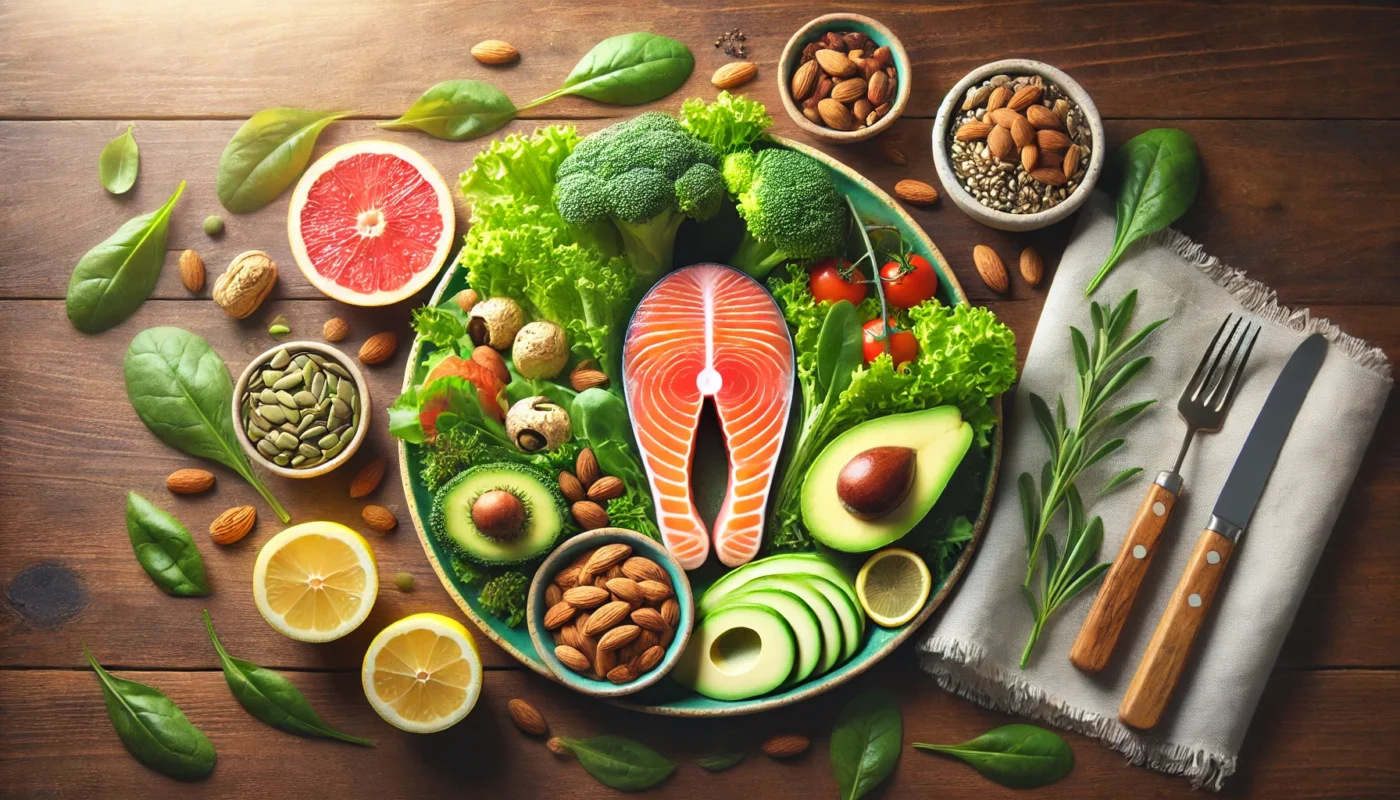Understanding the root causes and symptoms of gastritis is essential for effective management through natural remedies. This section delves into the different factors contributing to the condition and the common symptoms experienced by those affected.
You may also like: 20 Powerful Anti-Inflammatory Foods
Causes of Gastritis
Gastritis can be triggered by multiple factors, and identifying these is crucial for addressing the condition holistically. Excessive alcohol consumption is a well-known cause, as alcohol irritates the stomach lining and increases acid production. Chronic stress is another significant factor; it can disrupt the balance of stomach acids and lead to inflammation. Prolonged use of nonsteroidal anti-inflammatory drugs (NSAIDs), such as aspirin and ibuprofen, can also damage the stomach lining and contribute to gastritis. Lastly, infection with Helicobacter pylori, a bacterium that thrives in the acidic environment of the stomach, is a common culprit.
Recognizing Symptoms
Recognizing the symptoms of gastritis is the first step in seeking appropriate treatment. Common symptoms include persistent stomach pain, which may be sharp or burning. Nausea and vomiting are also frequent, often worsened by eating. Bloating and a feeling of fullness in the upper abdomen are other indicators. Indigestion, characterized by discomfort or a burning sensation in the chest, is another common symptom that can be confused with heartburn.
Importance of Diagnosis
Getting an accurate diagnosis is vital for managing gastritis effectively. A healthcare professional can perform tests to determine the presence of H. pylori or other underlying issues. Diagnostic tests may include blood tests, stool tests, or a breath test to check for H. pylori infection. In some cases, an endoscopy may be necessary to examine the stomach lining directly. Understanding the specific cause of gastritis allows for more targeted natural treatment strategies.
Natural Remedies to Soothe Gastritis
Natural remedies can provide significant relief from gastritis symptoms by addressing inflammation and promoting healing. This section explores dietary adjustments, herbal remedies, and probiotics as key components of a natural treatment plan.
Dietary Adjustments
Dietary changes can have a profound impact on managing gastritis. Adopting an anti-inflammatory diet is often recommended to soothe the stomach lining and reduce symptoms.
- Fruits and Vegetables: Incorporating a wide variety of fruits and vegetables can provide essential nutrients that support healing. Non-citrus options like apples and bananas are gentle on the stomach, while leafy greens and carrots are rich in antioxidants that combat inflammation.
- Whole Grains: Whole grains such as oatmeal and brown rice are not only nutritious but also easy on the stomach. They provide a steady source of energy and help maintain a healthy digestive system without irritating the gastric lining.
- Lean Proteins: Choosing lean proteins like chicken, turkey, and fish is beneficial for those with gastritis. These proteins are easier to digest and less likely to trigger symptoms, unlike fatty meats that can increase stomach acid production.
Herbal Remedies
Herbal remedies have been used for centuries to alleviate digestive issues, and they can be particularly effective for gastritis.
- Ginger: Ginger is renowned for its anti-inflammatory and anti-nausea properties. Consuming ginger tea or adding fresh ginger to meals can help reduce stomach discomfort and improve digestion.
- Chamomile: Chamomile tea is a popular choice for soothing the digestive tract. It can help calm inflammation and promote relaxation, making it a valuable remedy for gastritis symptoms.
- Licorice Root: Deglycyrrhizinated licorice (DGL) is a form of licorice that is effective in protecting the stomach lining. It stimulates mucus production, which acts as a barrier against stomach acid and promotes healing.

Probiotics
Probiotics play a crucial role in maintaining gut health and can be beneficial in managing gastritis, especially when related to H. pylori infection.
- Yogurt: Opt for plain, unsweetened yogurt with live cultures to enhance digestive health. The probiotics in yogurt can help restore the natural balance of gut bacteria and support the healing process.
- Fermented Foods: Incorporating fermented foods like sauerkraut, kimchi, and kefir can boost probiotic intake. These foods are rich in beneficial bacteria that promote a healthy gut environment and may help reduce gastritis symptoms.
Lifestyle Modifications
Lifestyle changes are an integral part of a holistic approach to managing gastritis. This section explores stress management techniques and the avoidance of irritants as key strategies for symptom relief.
Stress Management
Managing stress effectively can have a significant impact on gastritis symptoms. Stress reduction techniques can improve overall well-being and promote digestive health.
- Mindfulness Meditation: Practicing mindfulness meditation regularly can help lower stress levels and promote a sense of calm. By focusing on the present moment, individuals can reduce the impact of stress on the digestive system.
- Yoga: Yoga combines physical postures, breathing exercises, and meditation to reduce stress and improve digestion. Regular practice can help alleviate gastritis symptoms by promoting relaxation and enhancing overall health.
- Breathing Exercises: Simple breathing exercises, such as deep breathing or progressive relaxation, can be effective in managing stress. These exercises can be done anywhere and provide a quick way to calm the mind and body.
Avoidance of Irritants
Avoiding substances that irritate the stomach lining is essential for managing gastritis effectively. Identifying and eliminating these irritants can help prevent symptom flare-ups.
- Alcohol and Tobacco: Both alcohol and tobacco can exacerbate gastritis symptoms and should be limited or avoided entirely. These substances irritate the stomach lining and increase the risk of inflammation.
- Caffeine and Spicy Foods: Caffeine and spicy foods can increase stomach acidity and lead to discomfort. Reducing or eliminating these from the diet can help minimize gastritis symptoms and promote healing.
- Processed Foods: Processed foods often contain additives and preservatives that can irritate the stomach. Choosing fresh, whole foods can support digestive health and reduce the risk of gastritis flare-ups.
Homeopathic and Holistic Approaches
Homeopathic and holistic therapies can complement dietary and lifestyle changes, providing additional support for gastritis relief. This section explores homeopathic remedies and holistic therapies that may benefit individuals with gastritis.
Homeopathic Remedies
Homeopathy offers personalized treatment options based on individual symptoms and health history. Consulting with a qualified homeopath can provide tailored recommendations for managing gastritis.
- Nux Vomica: This remedy is often used for digestive issues accompanied by irritability and sensitivity to stress. It may be beneficial for individuals with gastritis who experience symptoms after eating.
- Arsenicum Album: Arsenicum album is commonly used for digestive discomfort, especially when symptoms include burning pain and anxiety. It may help alleviate gastritis symptoms and promote healing.
- Pulsatilla: Pulsatilla is recommended for individuals with digestive issues worsened by rich or fatty foods. It can help reduce nausea and promote a sense of calm.

Holistic Therapies
Incorporating holistic therapies can enhance the effectiveness of natural remedies for gastritis. These therapies focus on balancing the body’s energy and promoting overall well-being.
- Acupuncture: Acupuncture is an ancient Chinese therapy that can help balance the body’s energy and reduce gastritis symptoms. By stimulating specific points, acupuncture can promote healing and improve digestive health.
- Aromatherapy: Essential oils like peppermint and lavender may help reduce stress and promote relaxation. Aromatherapy can be used as a complementary therapy to support the management of gastritis symptoms.
- Massage Therapy: Massage therapy can help reduce stress and improve circulation, supporting overall digestive health. Regular massage sessions may complement other natural remedies for gastritis.
Scientific Backing for Natural Remedies
Scientific research supports the use of natural remedies for managing gastritis. This section highlights studies that demonstrate the effectiveness of these remedies in alleviating symptoms and promoting healing.
Research on Ginger
Ginger has been the subject of numerous studies due to its anti-inflammatory and digestive benefits. Research indicates that ginger can reduce inflammation in the stomach lining and improve gastric motility, making it a valuable remedy for gastritis.
Probiotics and Gut Health
Probiotics have been extensively studied for their role in enhancing gut health. Studies suggest that probiotics can help balance gut flora and may assist in eradicating H. pylori infection, a common cause of gastritis.
Herbal Remedies and Inflammation
Herbal remedies like chamomile and licorice root have shown promise in reducing inflammation and promoting healing. Scientific studies support their use in managing gastritis symptoms and improving digestive health.

Conclusion
Natural remedies for gastritis offer a holistic approach to managing this common digestive condition. By incorporating dietary changes, herbal remedies, probiotics, and stress management techniques, individuals can experience significant relief from symptoms. However, it’s important to consult with healthcare professionals before making significant changes to your health regimen, especially if you have underlying health conditions or are taking medications. Embrace these natural strategies to support your journey towards optimal digestive health.
Further Reading:
Natural Remedies for Gastritis
7 Best Natural Gastritis Treatments At Home for Quick Relief
Effective Natural Remedies, Gastritis Relief, Causes of Gastritis, Symptoms of Gastritis, Dietary Adjustments, Herbal Remedies, Probiotics, Stress Management, Homeopathic Remedies, Holistic Therapies, Scientific Research, Digestive Health, Natural Treatment Strategies, Anti-inflammatory Diet, Gut Health
Important Note: The information contained in this article is for general informational purposes only, and should not be construed as health or medical advice, nor is it intended to diagnose, prevent, treat, or cure any disease or health condition. Before embarking on any diet, fitness regimen, or program of nutritional supplementation, it is advisable to consult your healthcare professional in order to determine its safety and probable efficacy in terms of your individual state of health.
Regarding Nutritional Supplements Or Other Non-Prescription Health Products: If any nutritional supplements or other non-prescription health products are mentioned in the foregoing article, any claims or statements made about them have not been evaluated by the U.S. Food and Drug Administration, and such nutritional supplements or other health products are not intended to diagnose, treat, cure, or prevent any disease

